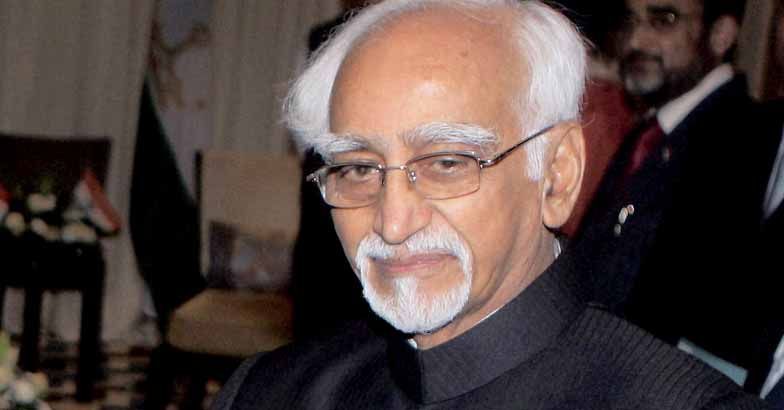Ashgabat (Turkmenistan): Turkmenistan's permanent neutral status led the central Asian country to develop and progress on its own terms over the last two decades, Indian Vice President Mohammad Hamid Ansari said on Saturday.
"Permanent neutrality of Turkmenistan has been a cornerstone of its foreign policy, guiding the nation-state founded on the ancient culture of Turkmen people to transform into a fast-growing economy marked by political stability," Ansari said at the international neutrality conference here.
The United Nations General Assembly (UNGA) on December 12, 1995 had adopted the resolution, co-sponsored by India, recognising and supporting the permanent neutrality status of Turkmenistan.
The GNSA also passed a resolution on June 3 this year to welcome the Turkmen government's decision to declare 2015 as the "year of peace and neutrality" and host an international conference on neutrality as its theme.
"My presence here is a reaffirmation of India's support to our Turkmen friends. Our people join me in felicitating Turkmenistan and its brave people on this historic occasion," Ansari said in his address on the 20th anniversary of adoption of its permanent neutrality.
In this context, he recalled the role of Turkmenistan's founding president Turkmenbashy Saparmurat Niyazov, who had conceived the country's permanent neutrality.
Turkmenistan President Gurbanguly Berdimohamedov and other dignitaries, including Pakistan Prime Minister Nawaz Sharif were present at the conference.
In the 20 years since adoption of a neutral status, Turkmenistan remained committed to building harmonious relations with its neighbours and promote peace and security in the world.
The former Soviet republic had also contributed to strengthen peace and stability in this region, a part of India's neighbourhood.
Ansari, who is on a three-day visit to Turkmenistan since Friday, will attend the TAPI (Turkmenistan-Afghanistan-Pakistan-India) gas pipeline ground-breaking ceremony on Sunday near the city of Mary.
Though Turkmenistan, Afghanistan and Pakistan initially signed an agreement to implement the ambitious project after a meeting in Islamabad in 2002, India joined the trio in 2006 through the Asia Development Bank, which did a feasibility study on the gas pipeline, and became a permanent member during their 10th steering committee meeting in 2008.
(With inputs from agencies)
























 Indian Vice President Mohammad Hamid Ansari (file picture)
Indian Vice President Mohammad Hamid Ansari (file picture)
Disclaimer
The comments posted here/below/in the given space are not on behalf of Manorama. The person posting the comment will be in sole ownership of its responsibility. According to the central government's IT rules, obscene or offensive statement made against a person, religion, community or nation is a punishable offense, and legal action would be taken against people who indulge in such activities.